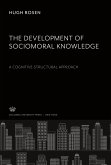Towards a Cognitive Mode in Global FinanceThe Governance of a Knowledge-Based Financial System
Towards a Cognitive Mode in Global Finance? - The Governance of a Knowledge-Based Financial System; .
The Governance of a Knowledge-Based Financial System
Herausgegeben:Strulik, Torsten; Willke, Helmut;Mitarbeit:Strulik, Torsten; Willke, Helmut; Hessling, Alexandra; Holzer, Boris; Kalthoff, Herbert; Kette, Sven; Kussin, Matthias; Pahl, Hanno; Sinclair, Tim
Towards a Cognitive Mode in Global FinanceThe Governance of a Knowledge-Based Financial System
Towards a Cognitive Mode in Global Finance? - The Governance of a Knowledge-Based Financial System; .
The Governance of a Knowledge-Based Financial System
Herausgegeben:Strulik, Torsten; Willke, Helmut;Mitarbeit:Strulik, Torsten; Willke, Helmut; Hessling, Alexandra; Holzer, Boris; Kalthoff, Herbert; Kette, Sven; Kussin, Matthias; Pahl, Hanno; Sinclair, Tim
- Broschiertes Buch
- Merkliste
- Auf die Merkliste
- Bewerten Bewerten
- Teilen
- Produkt teilen
- Produkterinnerung
- Produkterinnerung
Die zunehmende gesellschaftliche Bedeutung von Wissen und Wissensmanagement zeigt sich besonders deutlich im globalen Finanzsystem. Das Ende des Bretton- Woods-Systems 1973 markiert den Ausgangspunkt eines Finanzgeschäfts, dessen Steuerung durch einen kognitiven Umgang mit Unsicherheit bestimmt wird. An konkreten Beispielen (wie Bankgeschäft, Rechnungswesen, Rating) untersuchen die Autoren die Merkmale und Konsequenzen eines wissensintensiven finanzwirtschaftlichen und politischen Risikomanagements.
Andere Kunden interessierten sich auch für
![The End of the Cognitive Empire The End of the Cognitive Empire]() Boaventura de Sousa SantosThe End of the Cognitive Empire135,99 €
Boaventura de Sousa SantosThe End of the Cognitive Empire135,99 €![Understanding the Context of Cognitive Aging Understanding the Context of Cognitive Aging]() Understanding the Context of Cognitive Aging103,99 €
Understanding the Context of Cognitive Aging103,99 €![Socioeconomic Outcomes of the Global Financial Crisis Socioeconomic Outcomes of the Global Financial Crisis]() Socioeconomic Outcomes of the Global Financial Crisis216,99 €
Socioeconomic Outcomes of the Global Financial Crisis216,99 €![Surviving the Global Financial and Economic Downturn Surviving the Global Financial and Economic Downturn]() Hossein JalilianSurviving the Global Financial and Economic Downturn66,99 €
Hossein JalilianSurviving the Global Financial and Economic Downturn66,99 €![British Think Tanks After the 2008 Global Financial Crisis British Think Tanks After the 2008 Global Financial Crisis]() Marcos González HernandoBritish Think Tanks After the 2008 Global Financial Crisis63,99 €
Marcos González HernandoBritish Think Tanks After the 2008 Global Financial Crisis63,99 €![The Oxford Handbook of Cognitive Sociology The Oxford Handbook of Cognitive Sociology]() The Oxford Handbook of Cognitive Sociology229,99 €
The Oxford Handbook of Cognitive Sociology229,99 €![The Development of Sociomoral Knowledge. a Cognitive-Structural Approach The Development of Sociomoral Knowledge. a Cognitive-Structural Approach]() Hugh RosenThe Development of Sociomoral Knowledge. a Cognitive-Structural Approach61,00 €
Hugh RosenThe Development of Sociomoral Knowledge. a Cognitive-Structural Approach61,00 €-
-
-
Die zunehmende gesellschaftliche Bedeutung von Wissen und Wissensmanagement zeigt sich besonders deutlich im globalen Finanzsystem. Das Ende des Bretton- Woods-Systems 1973 markiert den Ausgangspunkt eines Finanzgeschäfts, dessen Steuerung durch einen kognitiven Umgang mit Unsicherheit bestimmt wird. An konkreten Beispielen (wie Bankgeschäft, Rechnungswesen, Rating) untersuchen die Autoren die Merkmale und Konsequenzen eines wissensintensiven finanzwirtschaftlichen und politischen Risikomanagements.
Produktdetails
- Produktdetails
- Verlag: Campus Verlag / University of Chicago Press
- Artikelnr. des Verlages: 38156
- Seitenzahl: 305
- Erscheinungstermin: Februar 2007
- Englisch
- Abmessung: 21mm x 142mm x 215mm
- Gewicht: 406g
- ISBN-13: 9783593381565
- ISBN-10: 3593381567
- Artikelnr.: 20845079
- Herstellerkennzeichnung Die Herstellerinformationen sind derzeit nicht verfügbar.
- Verlag: Campus Verlag / University of Chicago Press
- Artikelnr. des Verlages: 38156
- Seitenzahl: 305
- Erscheinungstermin: Februar 2007
- Englisch
- Abmessung: 21mm x 142mm x 215mm
- Gewicht: 406g
- ISBN-13: 9783593381565
- ISBN-10: 3593381567
- Artikelnr.: 20845079
- Herstellerkennzeichnung Die Herstellerinformationen sind derzeit nicht verfügbar.
Torsten Strulik ist Heisenberg- Stipendiat der Deutschen Forschungsgemeinschaft und Privatdozent an der Fakultät für Soziologie der Universität Bielefeld. Helmut Willke ist dort Professor für Staatstheorie und Global Governance.
Contributions by Kern Alexander, Alexandra Hessling, Boris Holzer, Herbert Kalthoff, Sven Kette, Matthias Kussin, Hanno Pahl, Timothy J. Sinclair, Torsten Strulik, Eleni Tsingou, Sigurt Vitols, Hendrik Vollmer und Helmut Willke
Contributions by Kern Alexander, Alexandra Hessling, Boris Holzer, Herbert Kalthoff, Sven Kette, Matthias Kussin, Hanno Pahl, Timothy J. Sinclair, Torsten Strulik, Eleni Tsingou, Sigurt Vitols, Hendrik Vollmer und Helmut Willke
ContentsPreface and Acknowledgements 7Introduction 9Torsten StrulikPart 1: Theoretical Perspectives on Knowledge and FinanceThe Autonomy of the Financial System: Symbolic Coupling and theLanguage of Capital 36Helmut WillkeOn the Unity and Difference of Finance and the Economy:Investigations for a New Sociology of Money 70Hanno PahlAn Institutional Approach to the Politics of Global Finance 104Timothy J. SinclairPart 2: Cultures and Techniques of a Cognitive ModeHow Financial Numbers are Symptomatic 132Hendrik VollmerCultures of Economic Calculation 156Herbert KalthoffCognitive Shifts in Regulation: The Role of Ignorance in theRegulatory Field of Accounting 180Alexandra HesslingPart 3: The Importance of Private Expertise in Financial GovernanceThe Role of Policy Communities in Global Financial Governance:A Critical Examination of the Group of Thirty 213Eleni TsingouRating Agencies, Ignorance and the Knowledge-Based Productionof System Trust 239Torsten StrulikPart 4: Basel II - A Cognitive Turn in Banking Regulation?Governance without Politics? Administration and Politics in theBasel II Process 259Boris HolzerMaking Use of Cognitive Standards: On the Logic of a New Modeof Governance in Global Finance 279Matthias Kussin/Sven KetteAuthors 304Contents
Preface and Acknowledgements 7
Introduction 9
Torsten Strulik
Part 1: Theoretical Perspectives on Knowledge and Finance
The Autonomy of the Financial System: Symbolic Coupling and the
Language of Capital 36
Helmut Willke
On the Unity and Difference of Finance and the Economy:
Investigations for a New Sociology of Money 70
Hanno Pahl
An Institutional Approach to the Politics of Global Finance 104
Timothy J. Sinclair
Part 2: Cultures and Techniques of a Cognitive Mode
How Financial Numbers are Symptomatic 132
Hendrik Vollmer
Cultures of Economic Calculation 156
Herbert Kalthoff
Cognitive Shifts in Regulation: The Role of Ignorance in the
Regulatory Field of Accounting 180
Alexandra Hessling
Part 3: The Importance of Private Expertise in Financial Governance
The Role of Policy Communities in Global Financial Governance:
A Critical Examination of the Group of Thirty 213
Eleni Tsingou
Rating Agencies, Ignorance and the Knowledge-Based Production
of System Trust 239
Torsten Strulik
Part 4: Basel II - A Cognitive Turn in Banking Regulation?
Governance without Politics? Administration and Politics in the
Basel II Process 259
Boris Holzer
Making Use of Cognitive Standards: On the Logic of a New Mode
of Governance in Global Finance 279
Matthias Kussin/Sven Kette
Authors 304
Preface and Acknowledgements 7
Introduction 9
Torsten Strulik
Part 1: Theoretical Perspectives on Knowledge and Finance
The Autonomy of the Financial System: Symbolic Coupling and the
Language of Capital 36
Helmut Willke
On the Unity and Difference of Finance and the Economy:
Investigations for a New Sociology of Money 70
Hanno Pahl
An Institutional Approach to the Politics of Global Finance 104
Timothy J. Sinclair
Part 2: Cultures and Techniques of a Cognitive Mode
How Financial Numbers are Symptomatic 132
Hendrik Vollmer
Cultures of Economic Calculation 156
Herbert Kalthoff
Cognitive Shifts in Regulation: The Role of Ignorance in the
Regulatory Field of Accounting 180
Alexandra Hessling
Part 3: The Importance of Private Expertise in Financial Governance
The Role of Policy Communities in Global Financial Governance:
A Critical Examination of the Group of Thirty 213
Eleni Tsingou
Rating Agencies, Ignorance and the Knowledge-Based Production
of System Trust 239
Torsten Strulik
Part 4: Basel II - A Cognitive Turn in Banking Regulation?
Governance without Politics? Administration and Politics in the
Basel II Process 259
Boris Holzer
Making Use of Cognitive Standards: On the Logic of a New Mode
of Governance in Global Finance 279
Matthias Kussin/Sven Kette
Authors 304
ContentsPreface and Acknowledgements 7Introduction 9Torsten StrulikPart 1: Theoretical Perspectives on Knowledge and FinanceThe Autonomy of the Financial System: Symbolic Coupling and theLanguage of Capital 36Helmut WillkeOn the Unity and Difference of Finance and the Economy:Investigations for a New Sociology of Money 70Hanno PahlAn Institutional Approach to the Politics of Global Finance 104Timothy J. SinclairPart 2: Cultures and Techniques of a Cognitive ModeHow Financial Numbers are Symptomatic 132Hendrik VollmerCultures of Economic Calculation 156Herbert KalthoffCognitive Shifts in Regulation: The Role of Ignorance in theRegulatory Field of Accounting 180Alexandra HesslingPart 3: The Importance of Private Expertise in Financial GovernanceThe Role of Policy Communities in Global Financial Governance:A Critical Examination of the Group of Thirty 213Eleni TsingouRating Agencies, Ignorance and the Knowledge-Based Productionof System Trust 239Torsten StrulikPart 4: Basel II - A Cognitive Turn in Banking Regulation?Governance without Politics? Administration and Politics in theBasel II Process 259Boris HolzerMaking Use of Cognitive Standards: On the Logic of a New Modeof Governance in Global Finance 279Matthias Kussin/Sven KetteAuthors 304Contents
Preface and Acknowledgements 7
Introduction 9
Torsten Strulik
Part 1: Theoretical Perspectives on Knowledge and Finance
The Autonomy of the Financial System: Symbolic Coupling and the
Language of Capital 36
Helmut Willke
On the Unity and Difference of Finance and the Economy:
Investigations for a New Sociology of Money 70
Hanno Pahl
An Institutional Approach to the Politics of Global Finance 104
Timothy J. Sinclair
Part 2: Cultures and Techniques of a Cognitive Mode
How Financial Numbers are Symptomatic 132
Hendrik Vollmer
Cultures of Economic Calculation 156
Herbert Kalthoff
Cognitive Shifts in Regulation: The Role of Ignorance in the
Regulatory Field of Accounting 180
Alexandra Hessling
Part 3: The Importance of Private Expertise in Financial Governance
The Role of Policy Communities in Global Financial Governance:
A Critical Examination of the Group of Thirty 213
Eleni Tsingou
Rating Agencies, Ignorance and the Knowledge-Based Production
of System Trust 239
Torsten Strulik
Part 4: Basel II - A Cognitive Turn in Banking Regulation?
Governance without Politics? Administration and Politics in the
Basel II Process 259
Boris Holzer
Making Use of Cognitive Standards: On the Logic of a New Mode
of Governance in Global Finance 279
Matthias Kussin/Sven Kette
Authors 304
Preface and Acknowledgements 7
Introduction 9
Torsten Strulik
Part 1: Theoretical Perspectives on Knowledge and Finance
The Autonomy of the Financial System: Symbolic Coupling and the
Language of Capital 36
Helmut Willke
On the Unity and Difference of Finance and the Economy:
Investigations for a New Sociology of Money 70
Hanno Pahl
An Institutional Approach to the Politics of Global Finance 104
Timothy J. Sinclair
Part 2: Cultures and Techniques of a Cognitive Mode
How Financial Numbers are Symptomatic 132
Hendrik Vollmer
Cultures of Economic Calculation 156
Herbert Kalthoff
Cognitive Shifts in Regulation: The Role of Ignorance in the
Regulatory Field of Accounting 180
Alexandra Hessling
Part 3: The Importance of Private Expertise in Financial Governance
The Role of Policy Communities in Global Financial Governance:
A Critical Examination of the Group of Thirty 213
Eleni Tsingou
Rating Agencies, Ignorance and the Knowledge-Based Production
of System Trust 239
Torsten Strulik
Part 4: Basel II - A Cognitive Turn in Banking Regulation?
Governance without Politics? Administration and Politics in the
Basel II Process 259
Boris Holzer
Making Use of Cognitive Standards: On the Logic of a New Mode
of Governance in Global Finance 279
Matthias Kussin/Sven Kette
Authors 304








